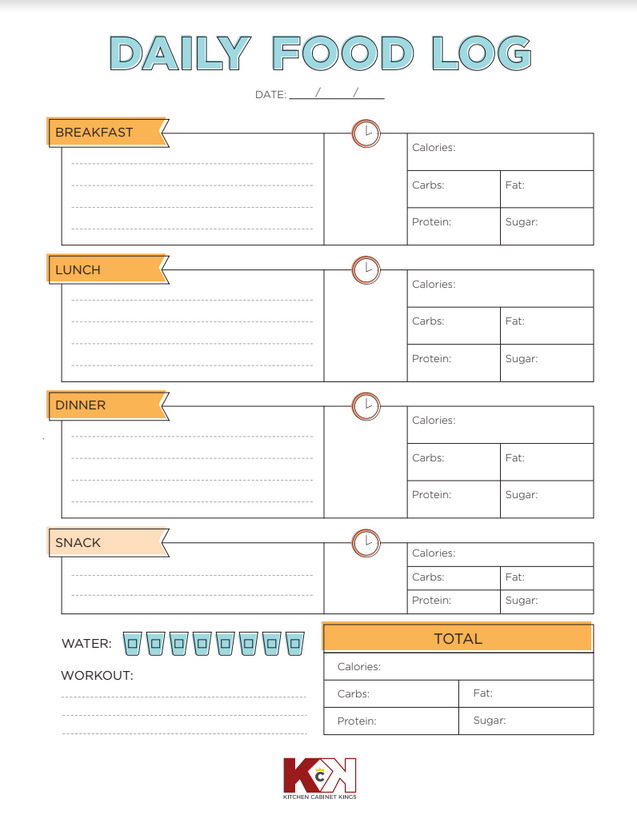Easy Food Journaling
- Written by Jessica Baker

Have you ever had an inexplicably busy day, and at the end of it, you can’t recall one meal in detail? How about the alternative, you’ve mindlessly been snacking while on a road trip or while watching TV, and before you know it, you’ve eaten a whole box of Tim Tams. This inconsistent binging and fasting can affect your overall health and mood.
A Cornell study notes that we make 200 food-related decisions per day. That’s a lot of choices to not be thinking twice about. Luckily, there’s an easy way to recognize these bad habits, and kick them to the curb. With a little mindfulness and food journaling, you’ll be on your way to a happy, healthy lifestyle.
What is a food journal?
A food journal is a detailed diary about everything you eat and drink throughout the day. By increasing awareness of what and how much you consume, you’ll be able to reach your weight loss goals easier. In fact, a study by Kaiser found that people with a food journal lost two times as much weight than those who didn’t within a six month period.
What to track
Contrary to what most believe, food journaling isn’t always about caloric intake. It could be about specifics that you care about most such as sugar consumption or curbing emotional eating all together. Consider tracking the below to start:
-
The food and the serving size
-
The drink and the serving size
-
Time of day
-
Where you ate or drank
-
How you felt before and after you ate or drank
If you want to focus on the amount of sodium or sugar you’re consuming, consider logging that with the above. You should record the data in your journal immediately after you consume something. The longer you wait, the harder it will be to get an accurate picture of the environment and remember the exact amounts.
The more detail you include, like how the food was cooked, the better. The goal of creating this journal is gathering accurate data that you can evaluate with honesty later.
Food Journaling Benefits
Once you’ve recorded a few weeks of data, it’s time to analyze. Can you see trends forming in your food habits? Do you eat low carb and high protein, do you eat on the go often? Notice each of these circumstances and how it impacted your mood after consumption. Once you track this information a few times, you might find a heightened sense of accountability, a greater grasp of portion control, or triggers to unhealthy habits.
The longer you track your food intake and the more detailed it is, the more telling it will be about your diet and what you should change. This food journaling printable from Kitchen Cabinet Kings is a simple way to track your most important consumption habits throughout the day. Store them on your refrigerator or in your assembled kitchen cabinets for a quick log to grab on your way out the door each morning.
Bio: Jessica is a Junior Content Marketing Specialist that enjoys generating traffic via quality content for her clients. When she’s not in the office, you can find her enjoying nature or reading novels.





